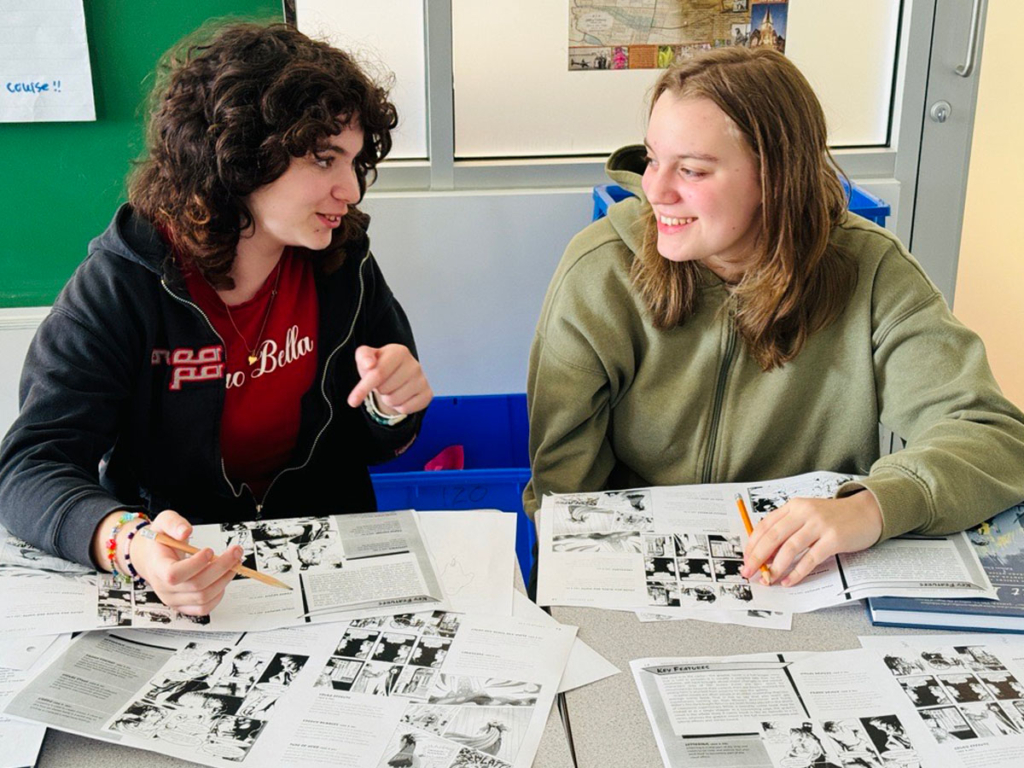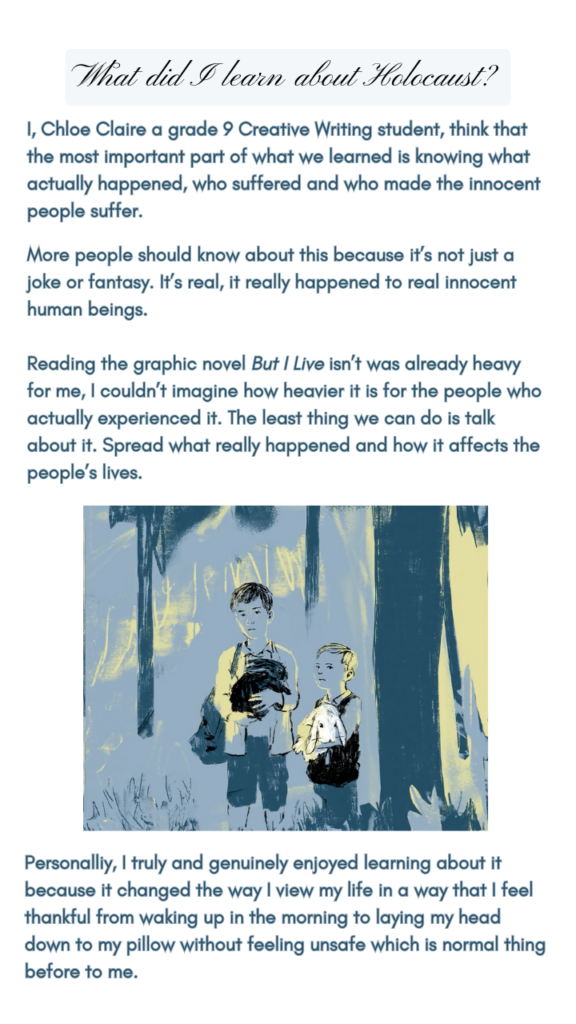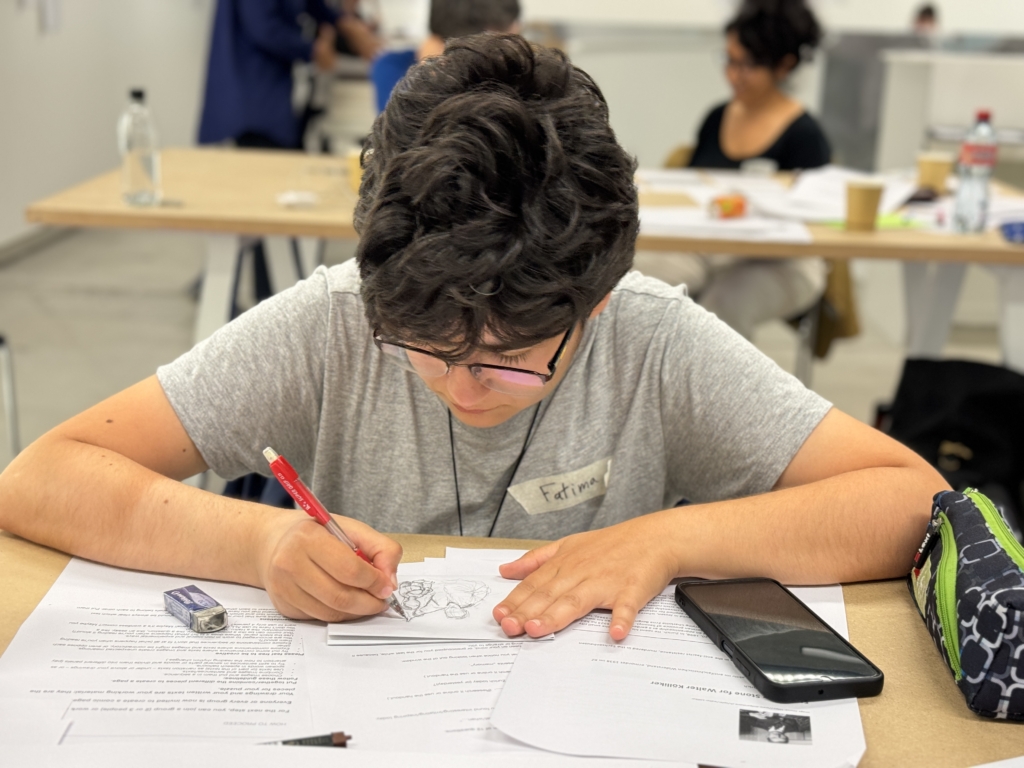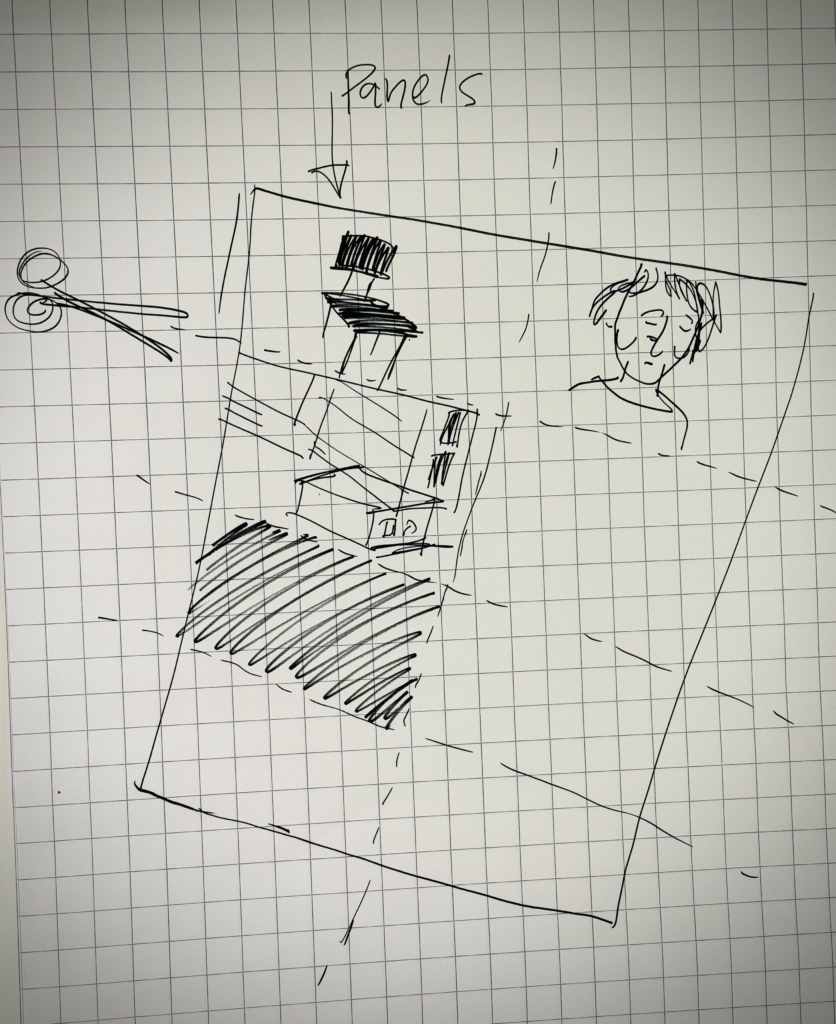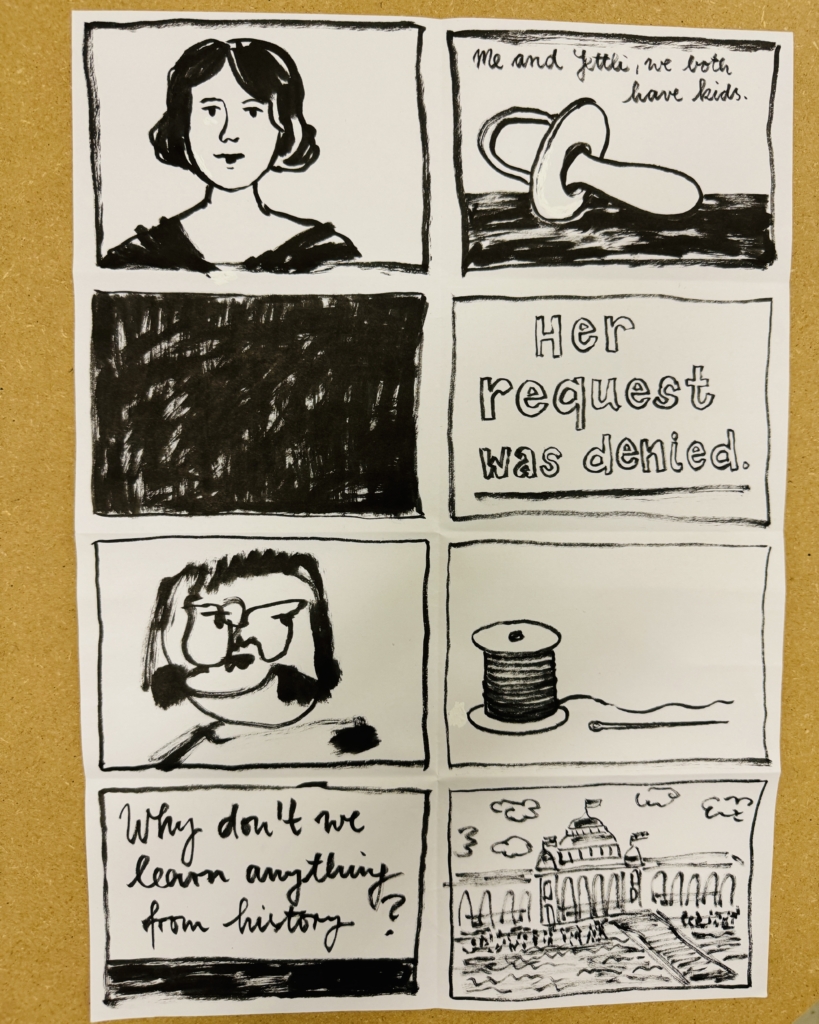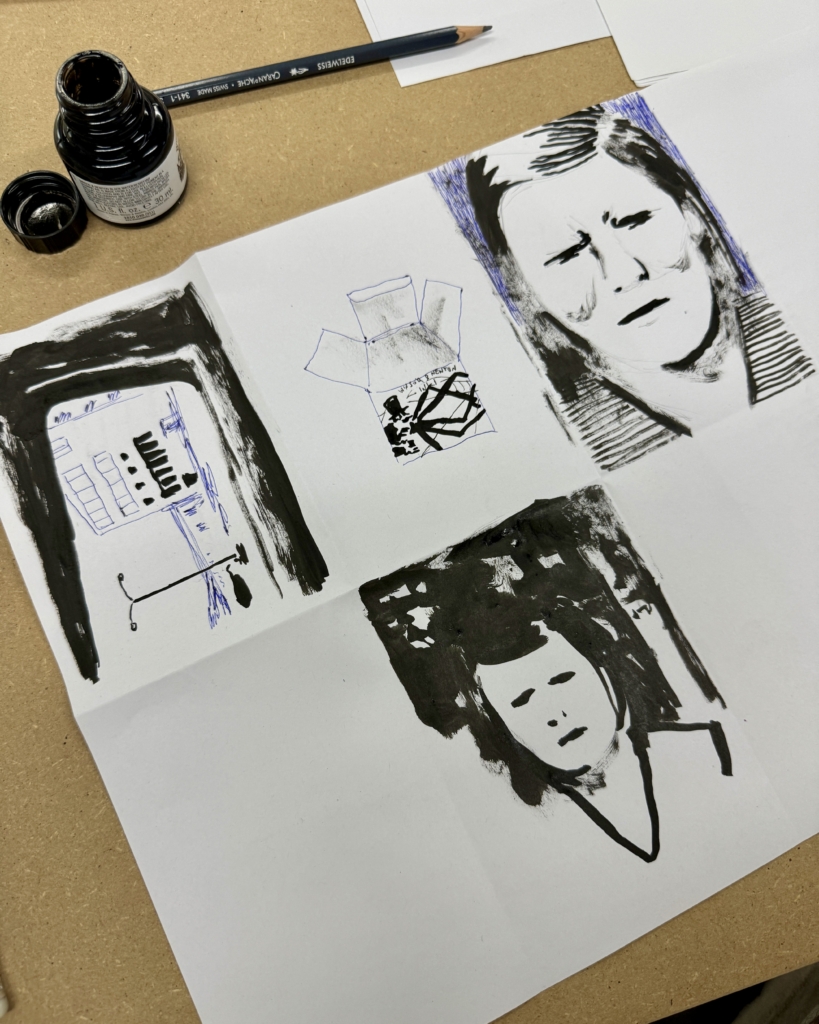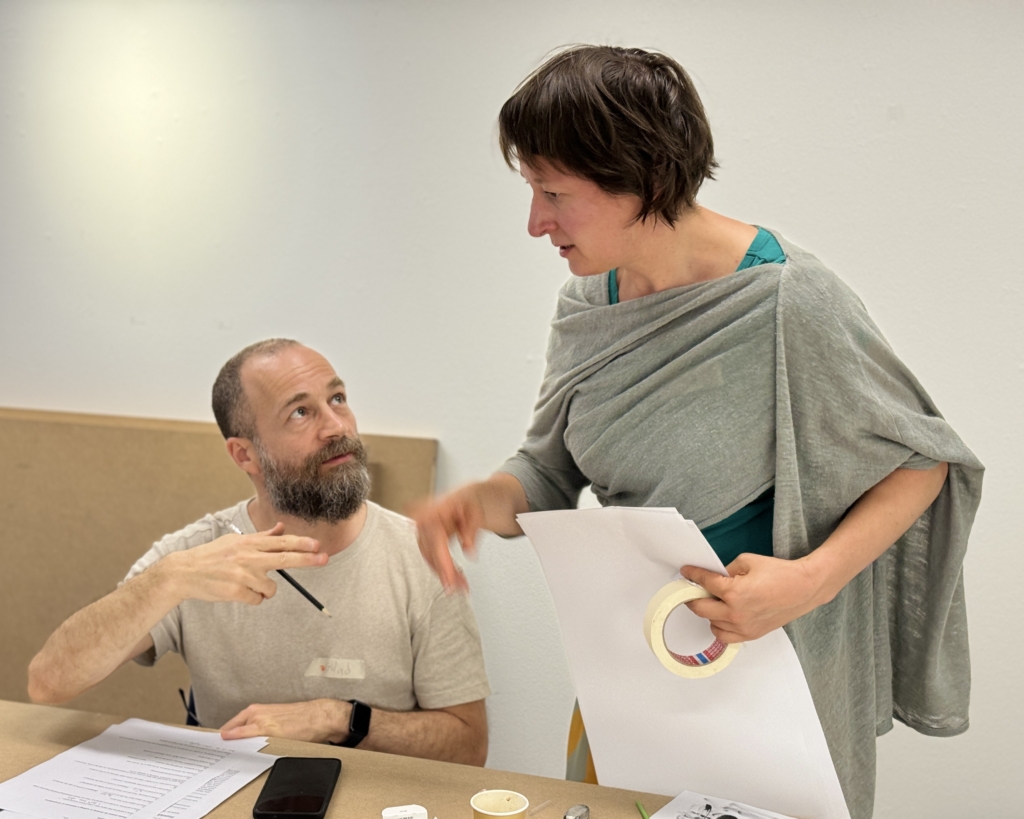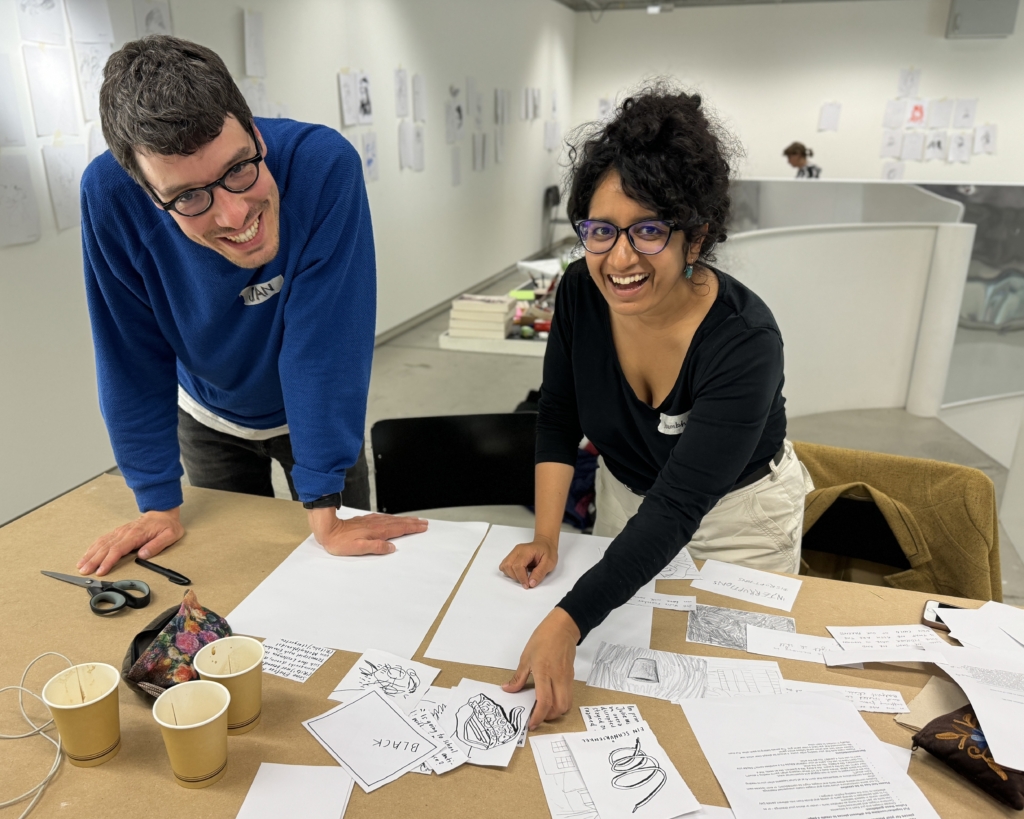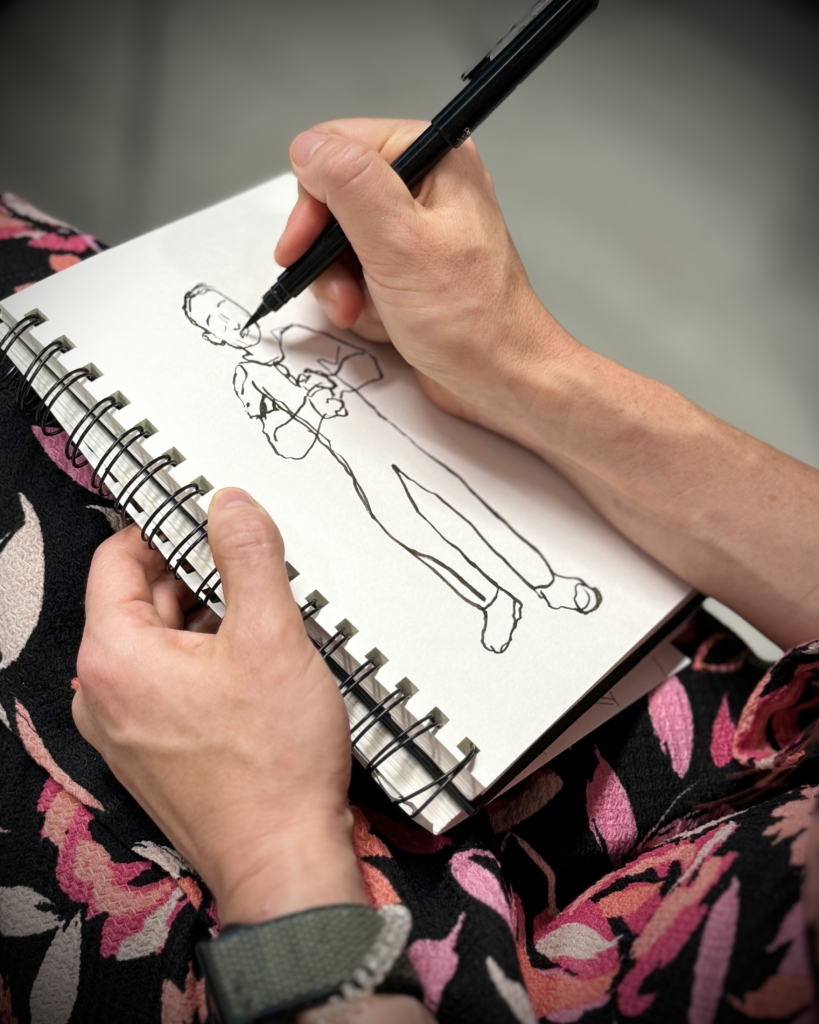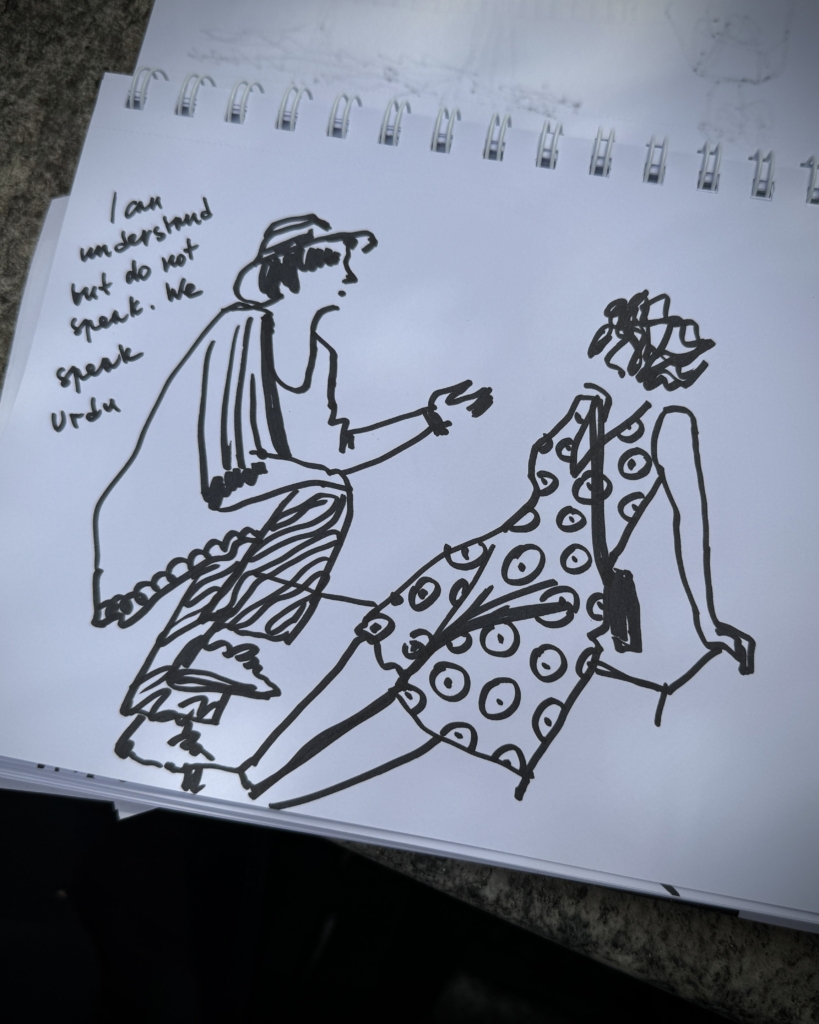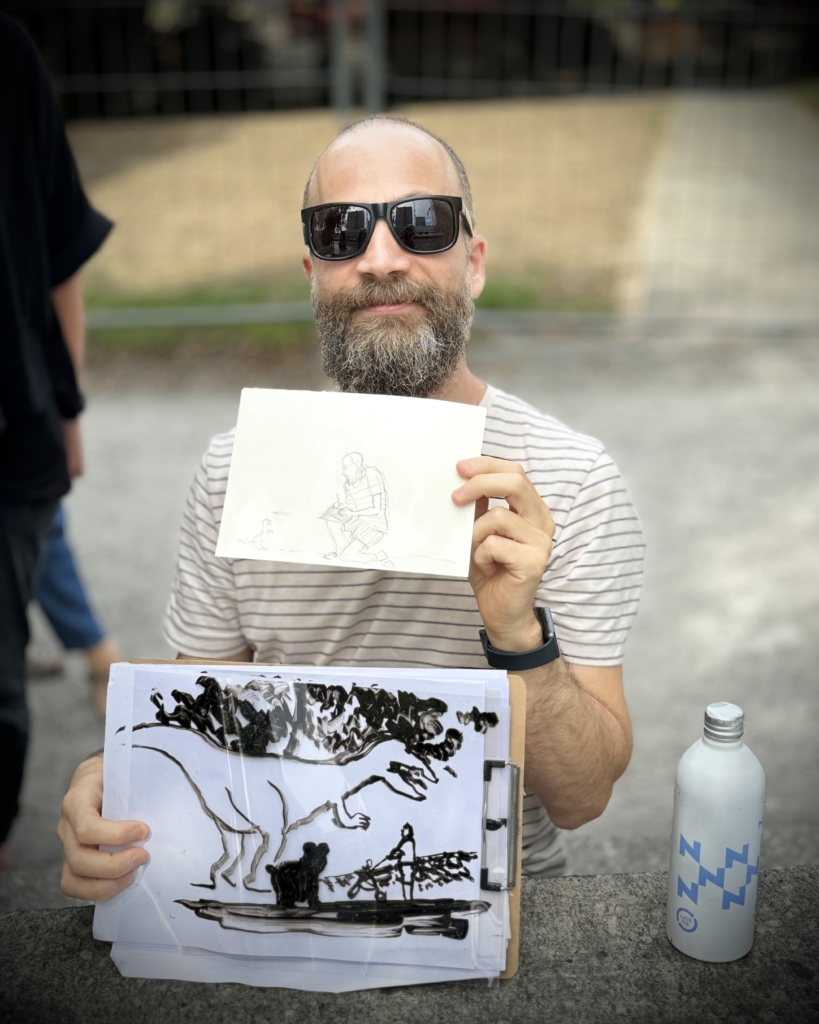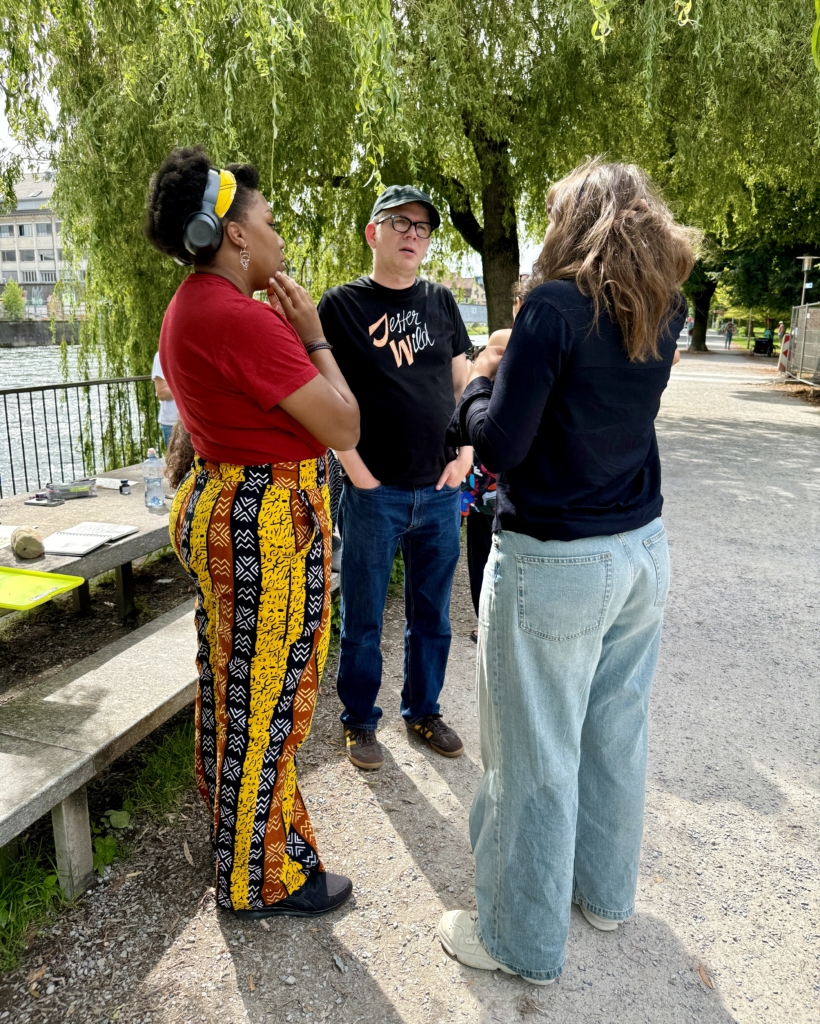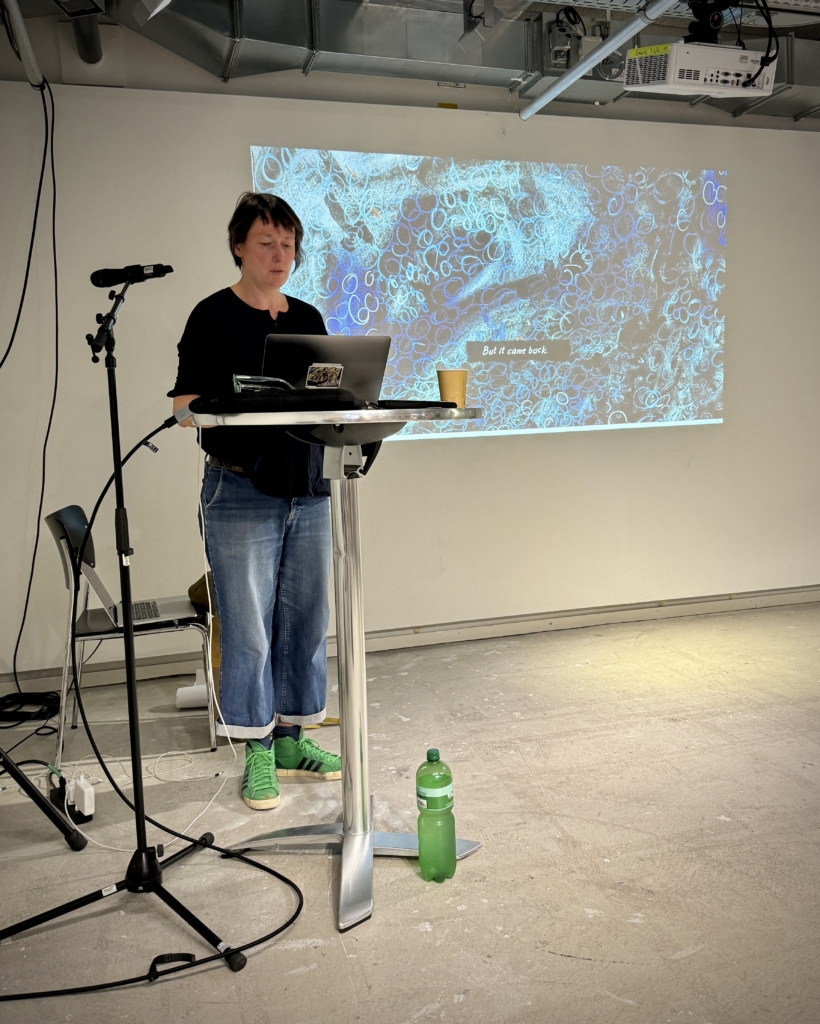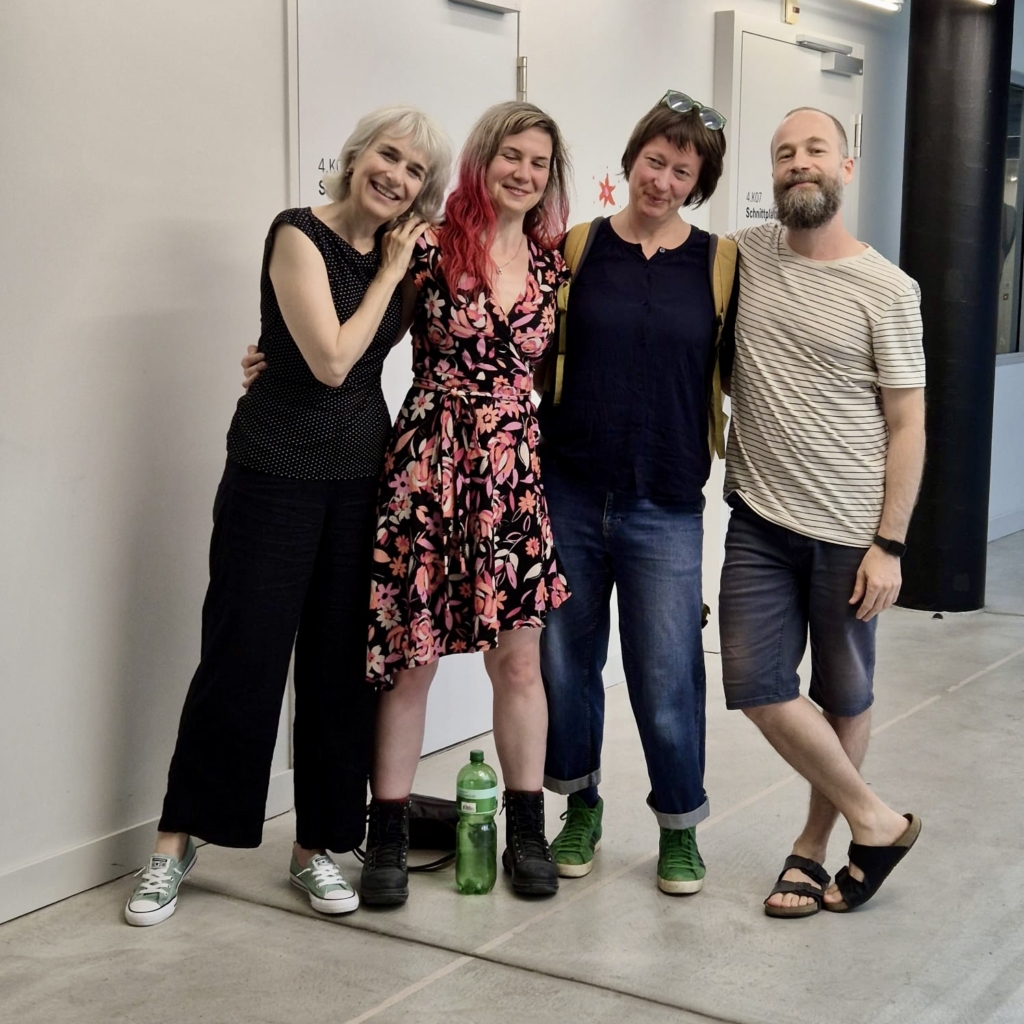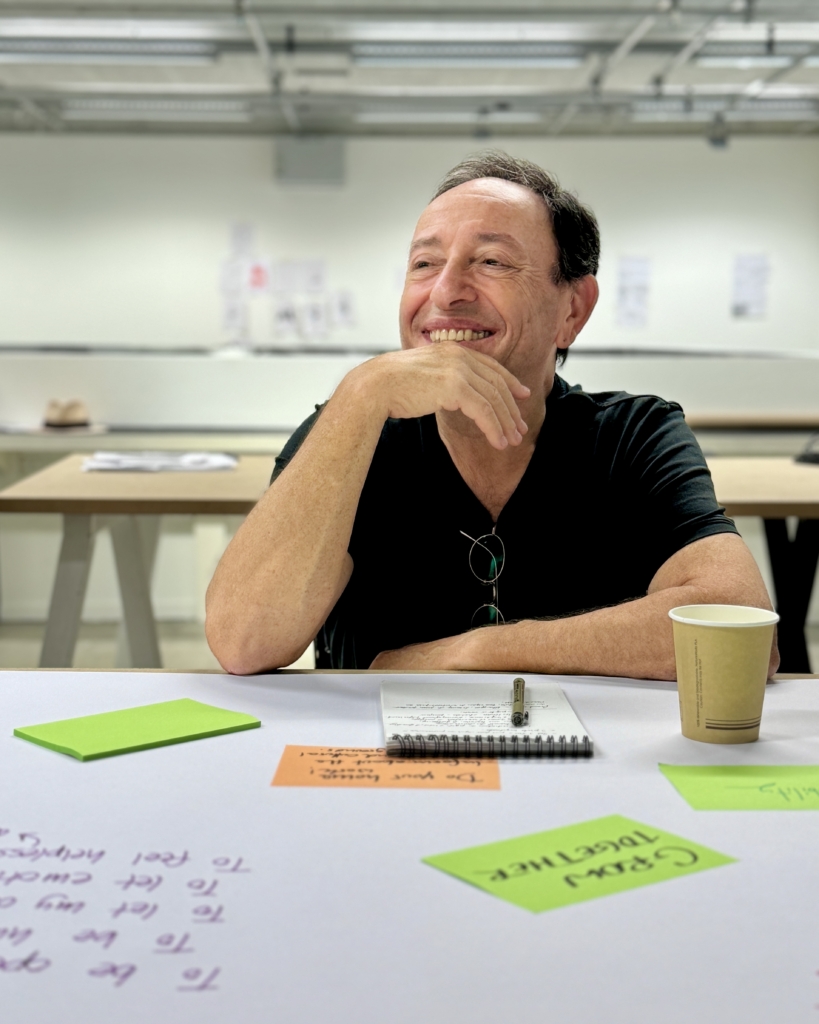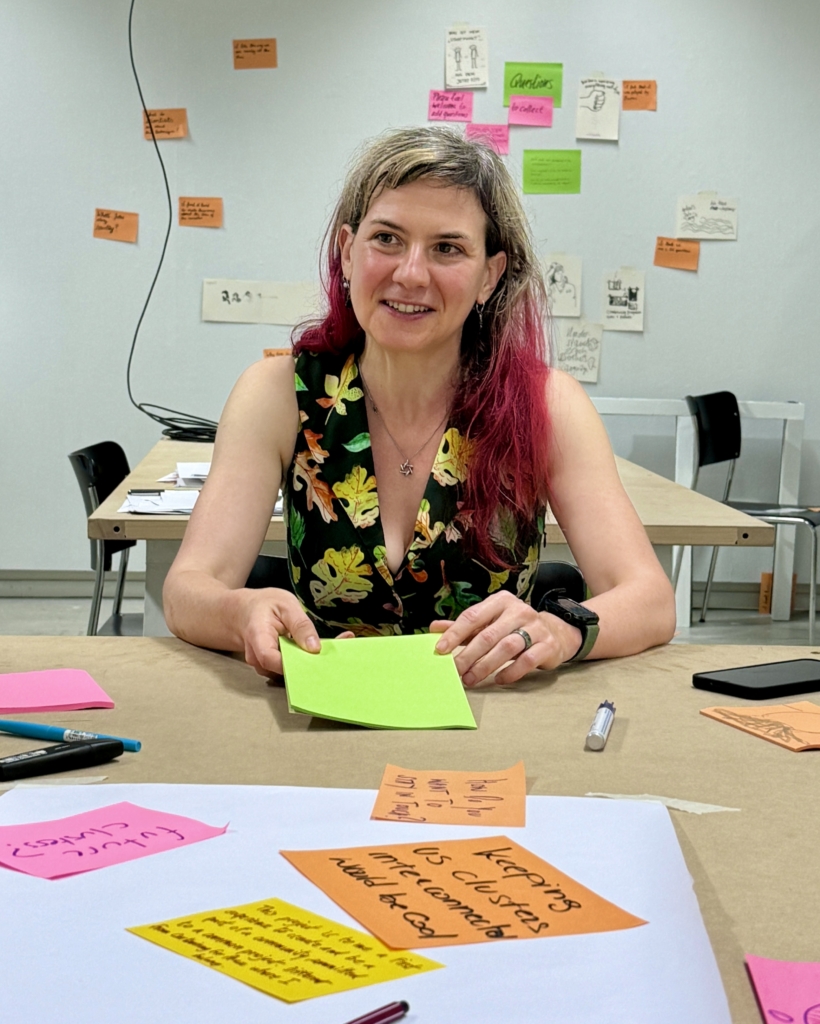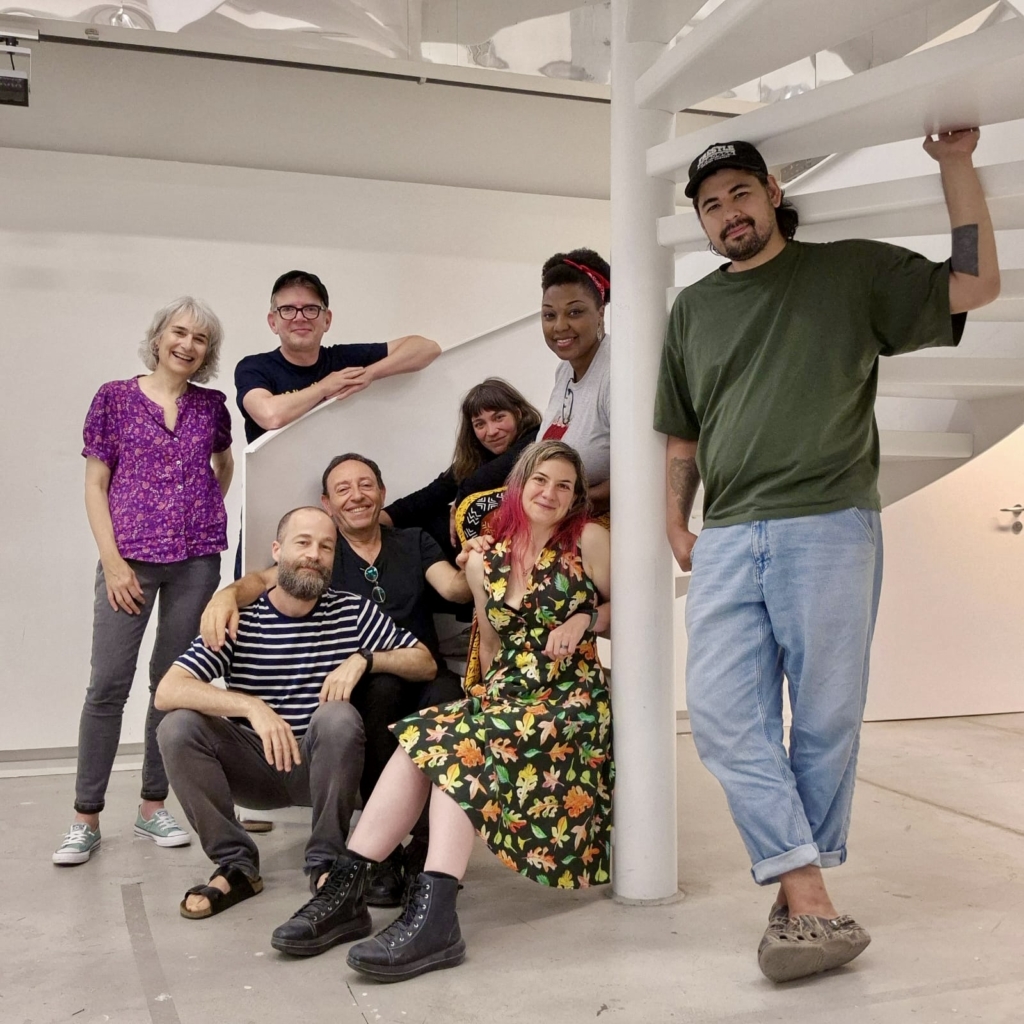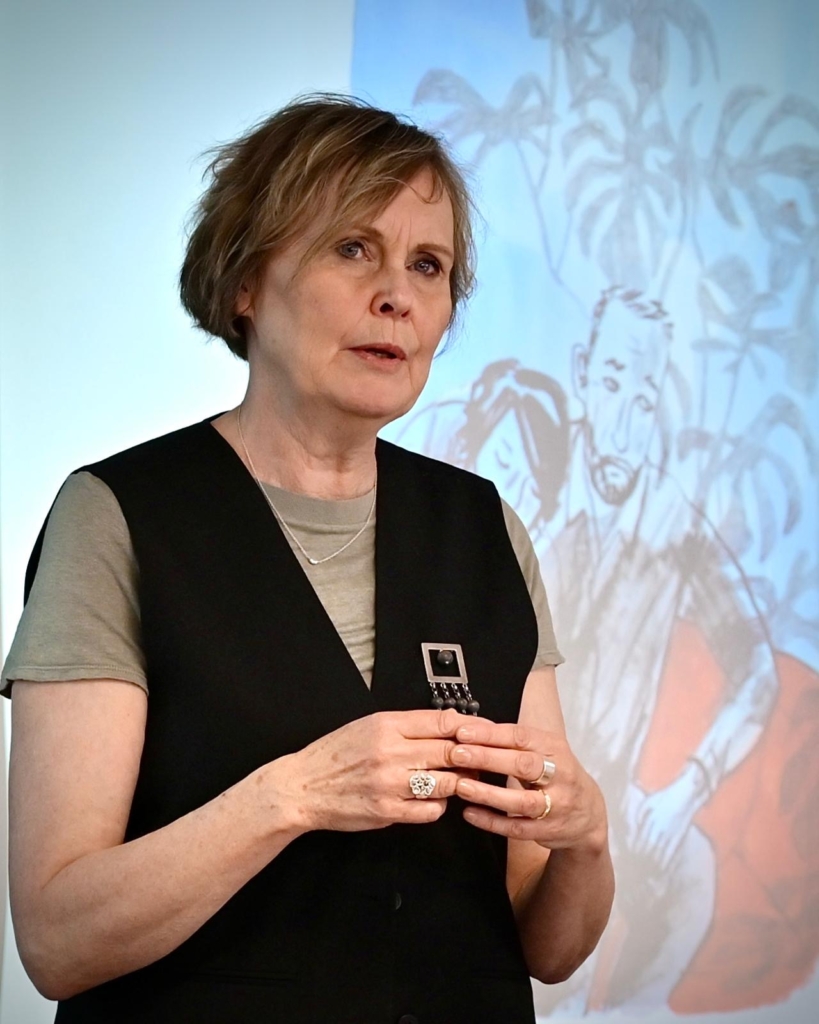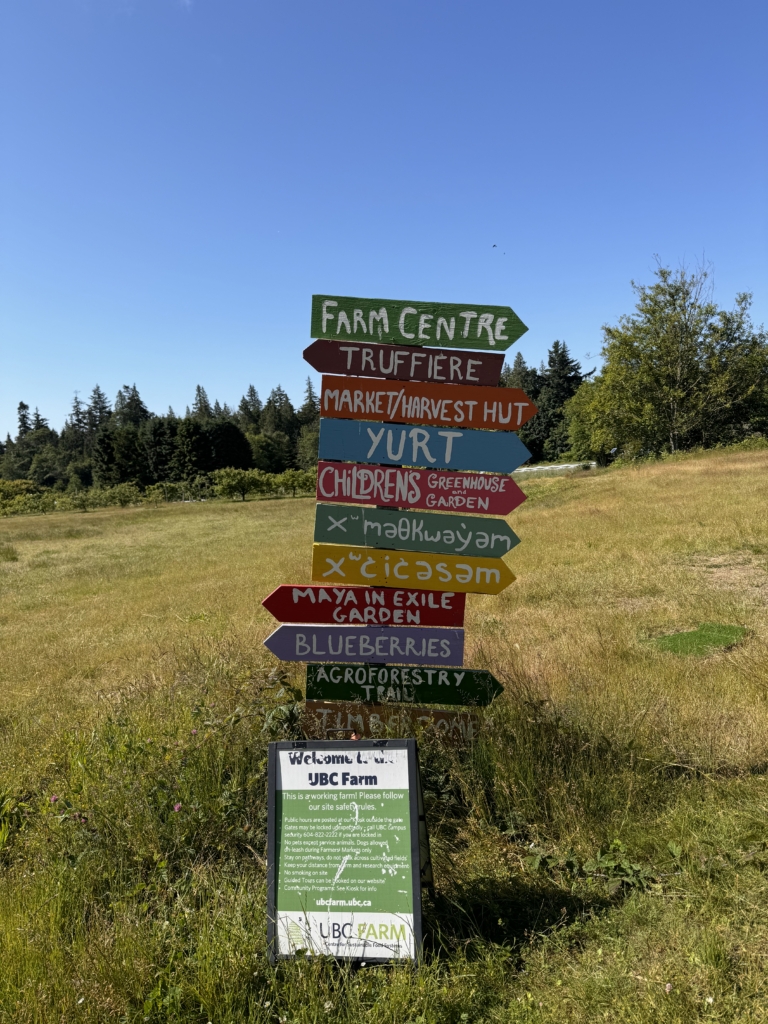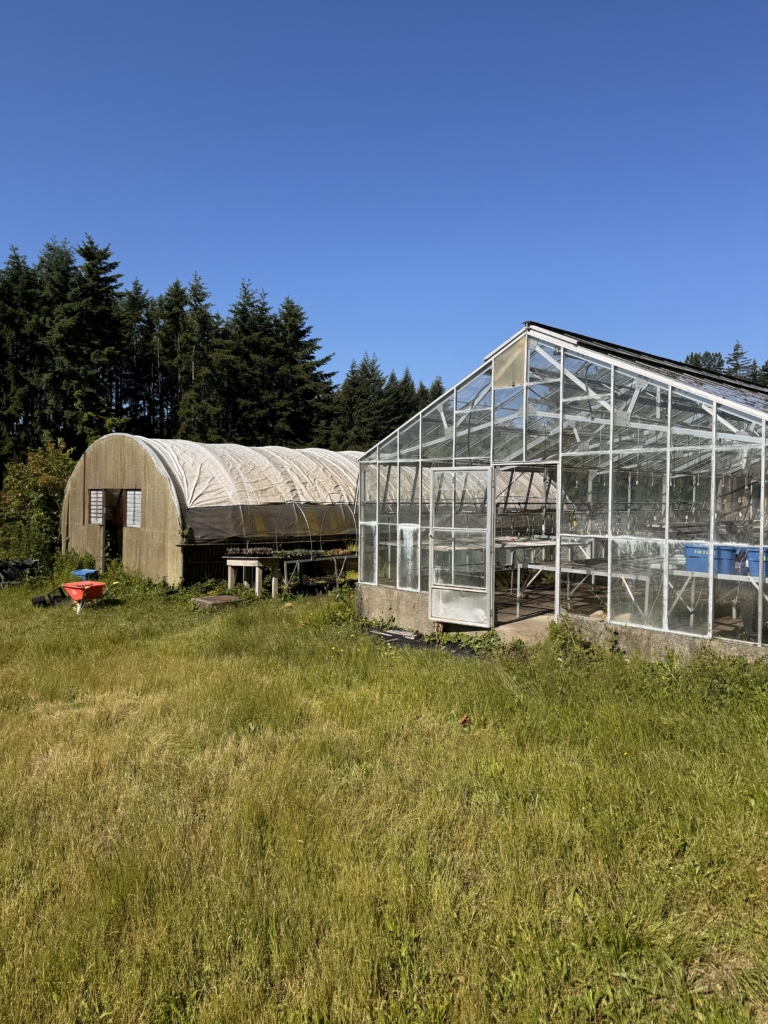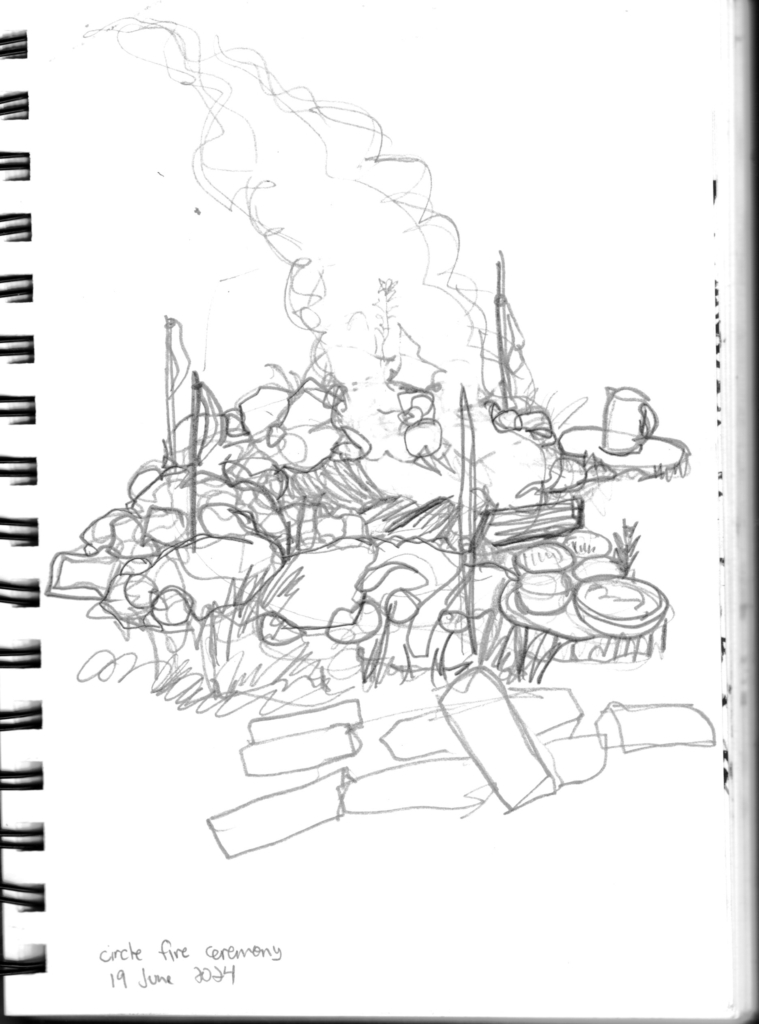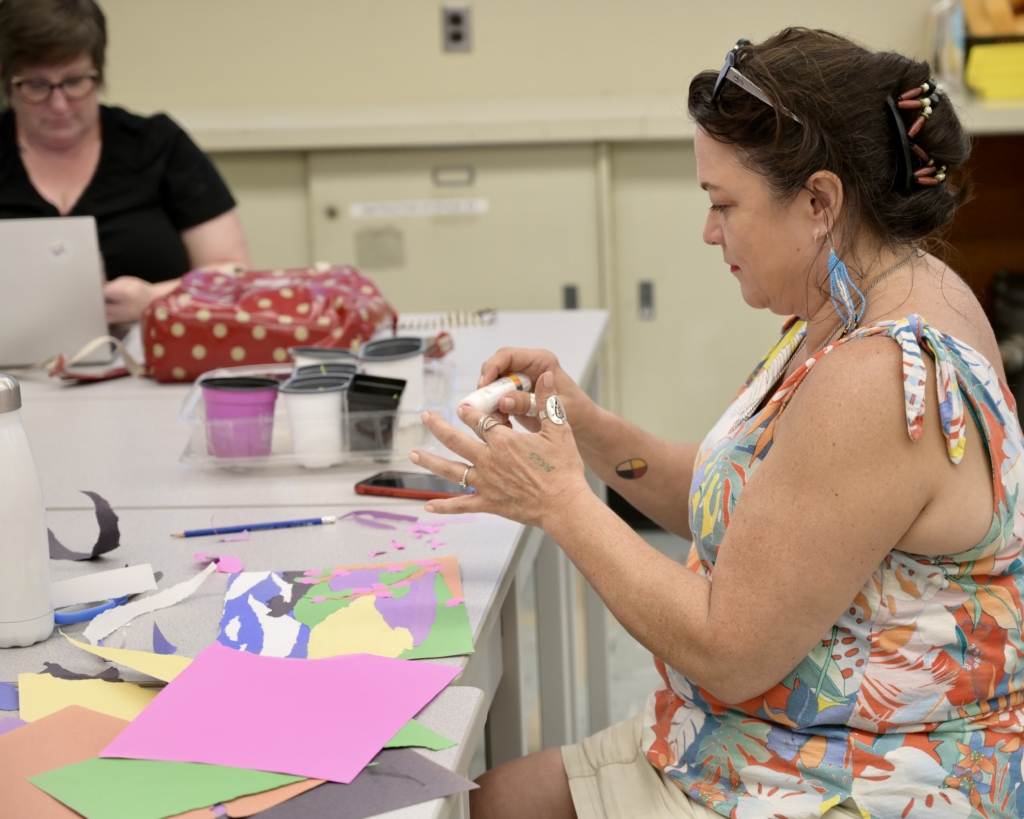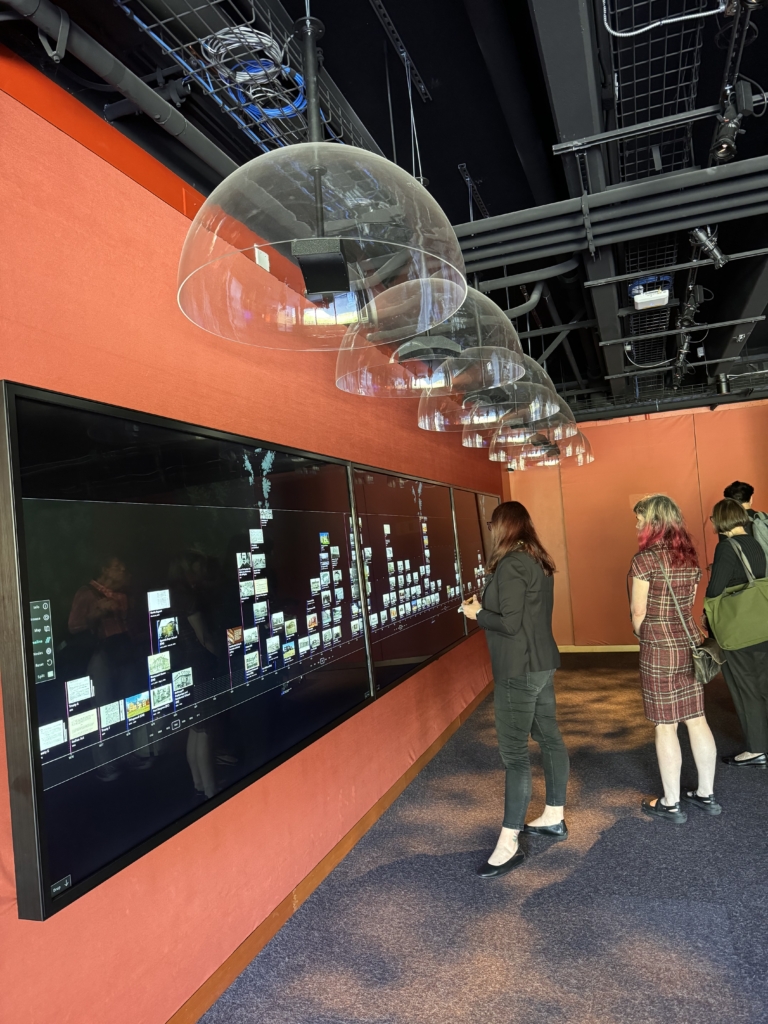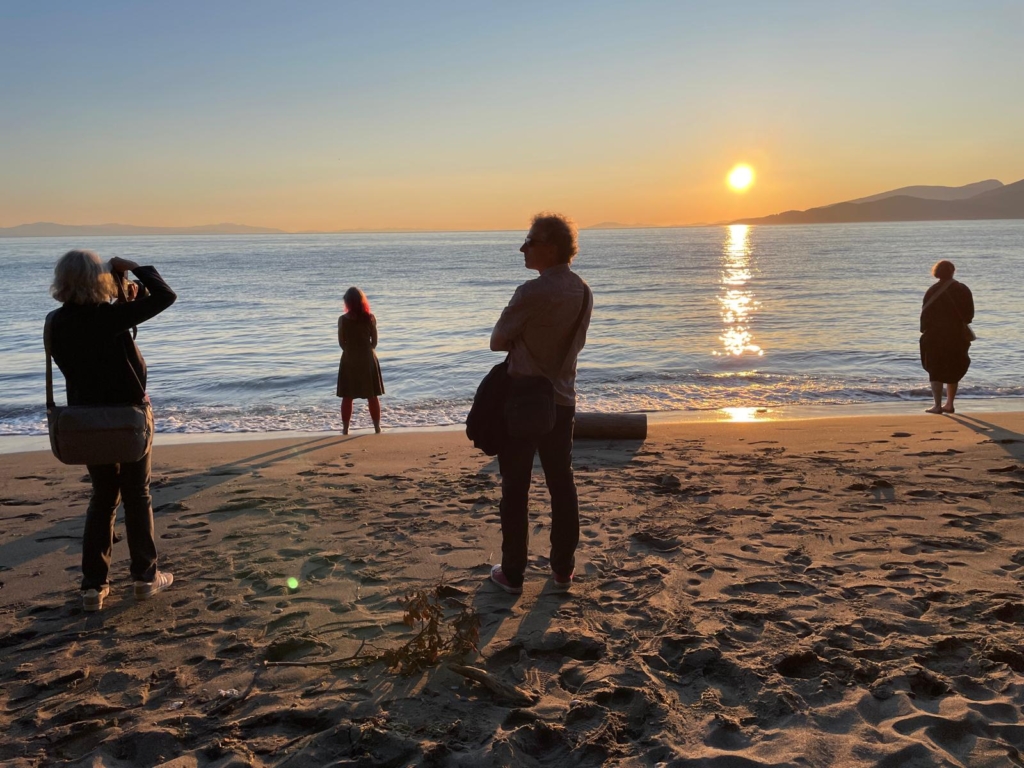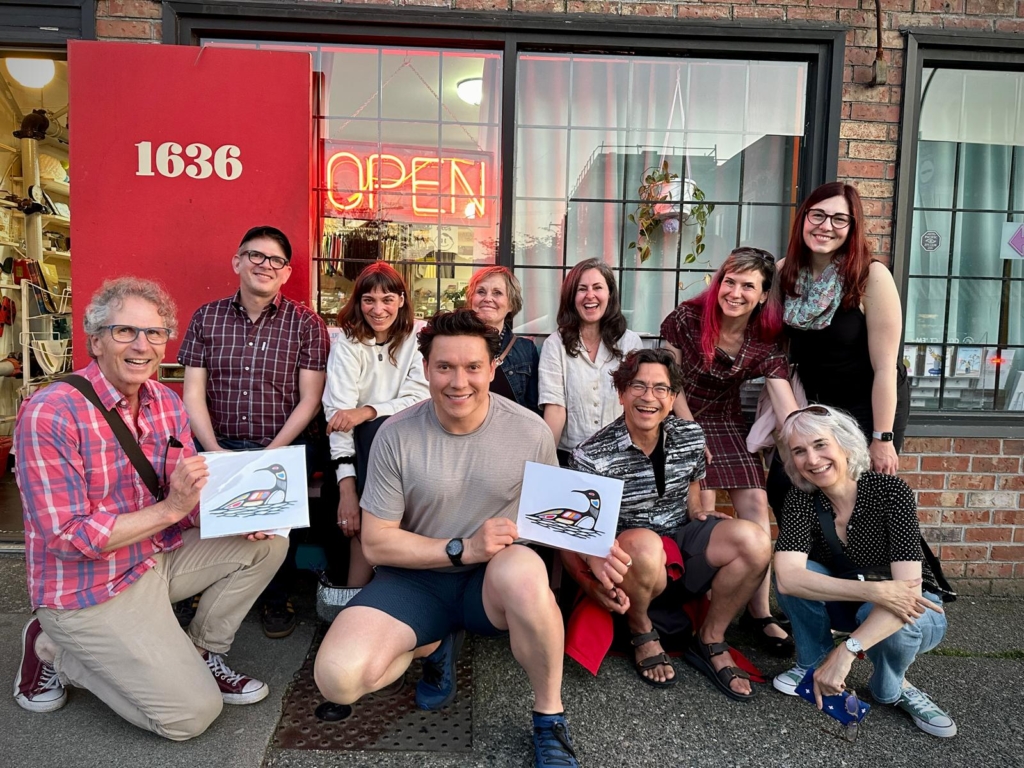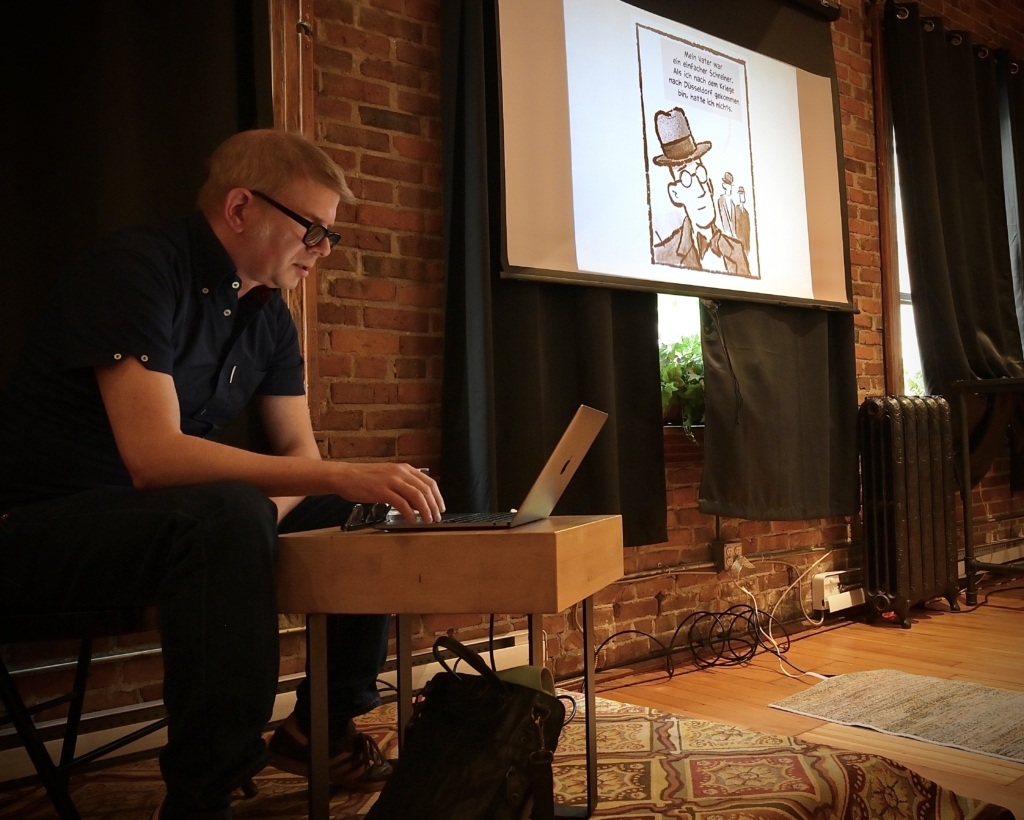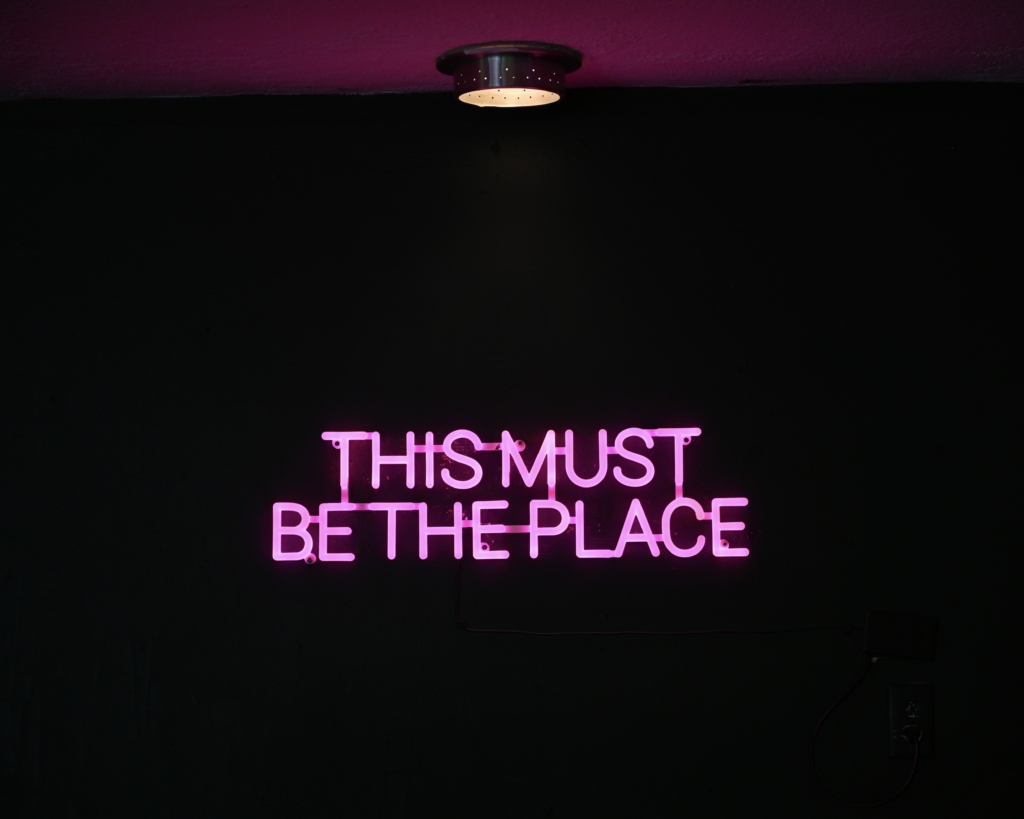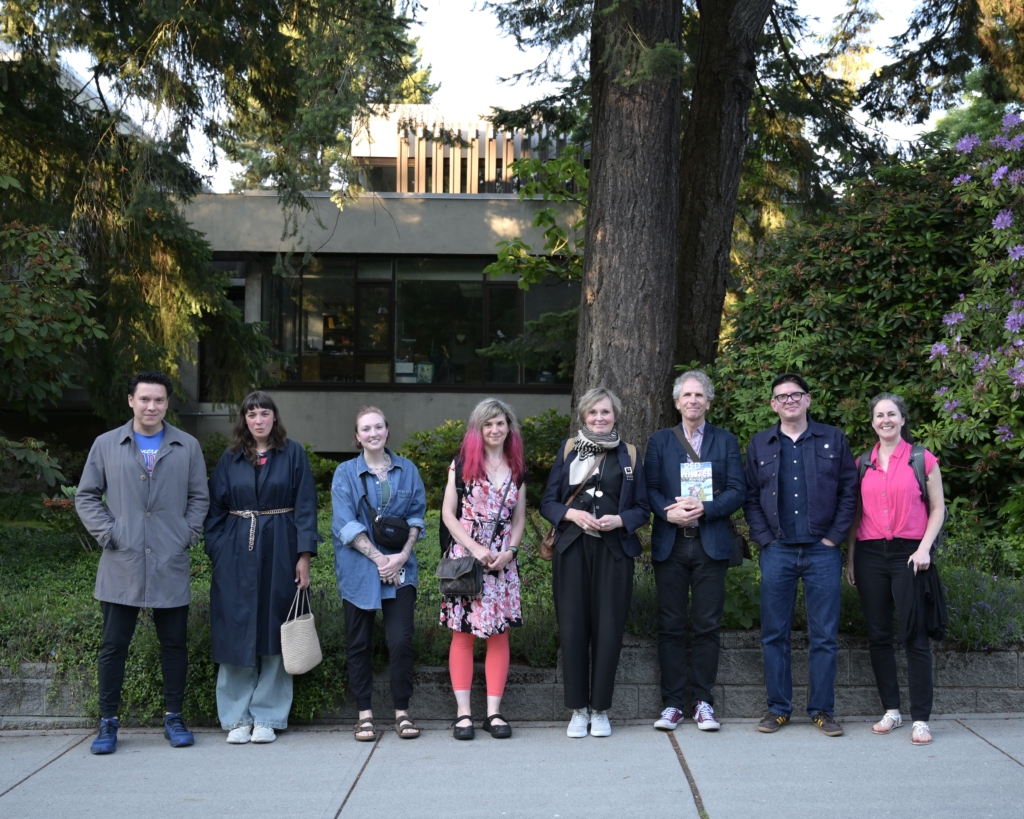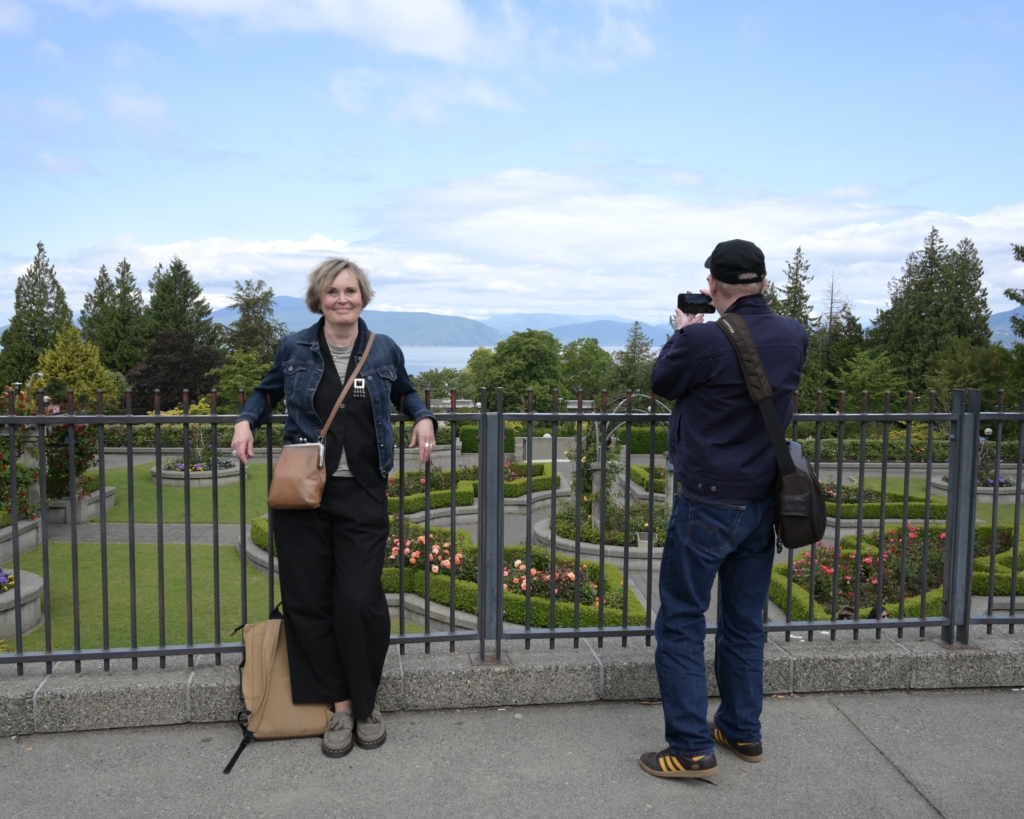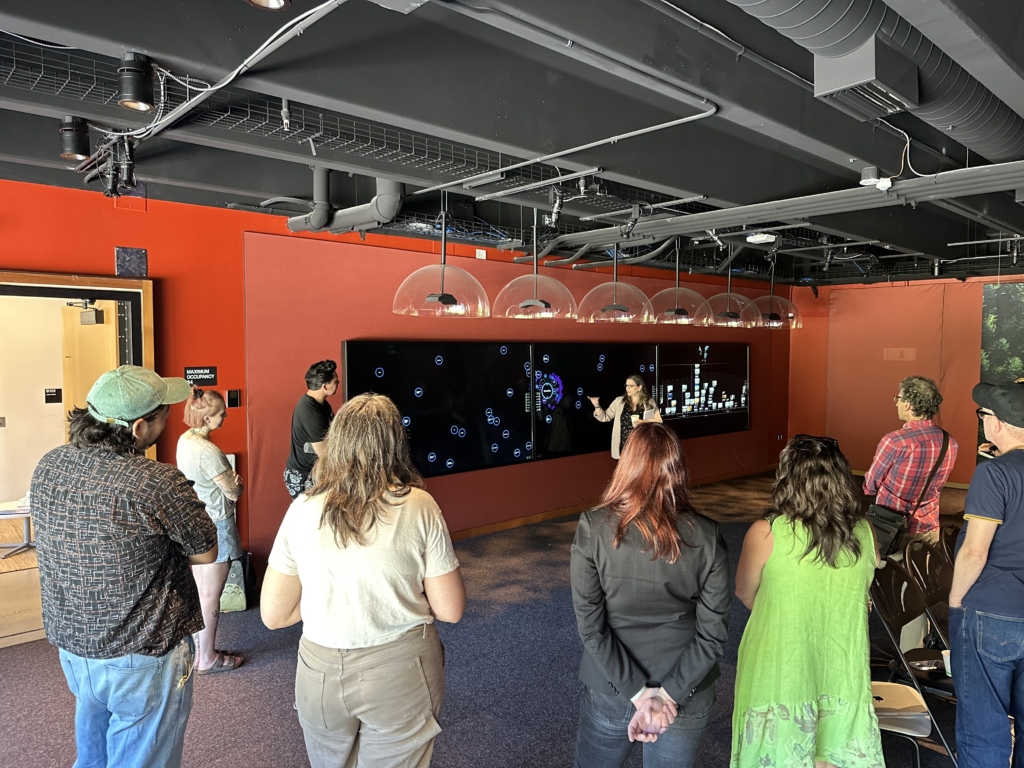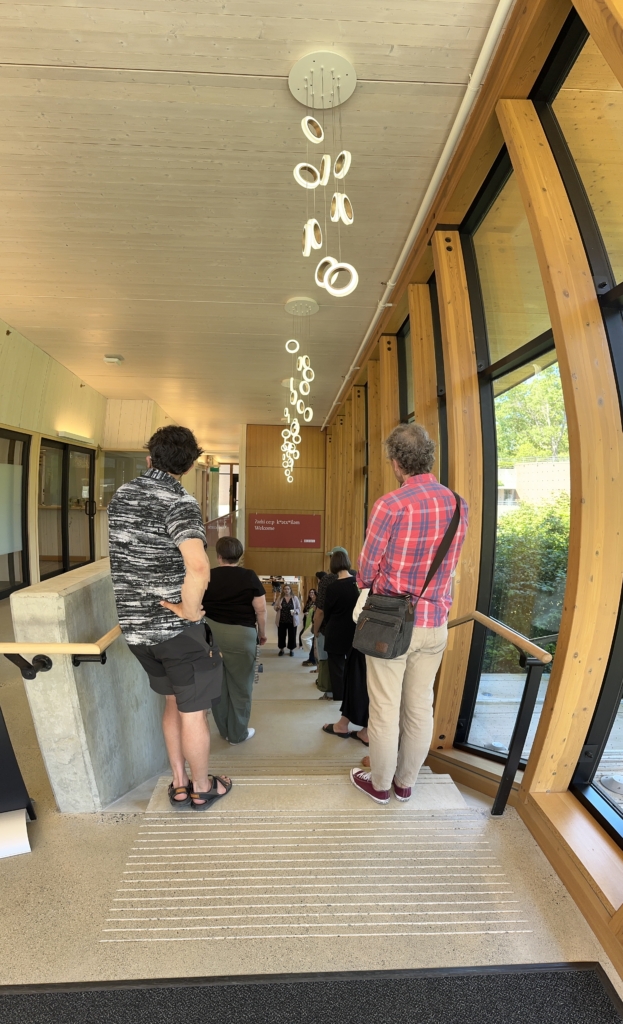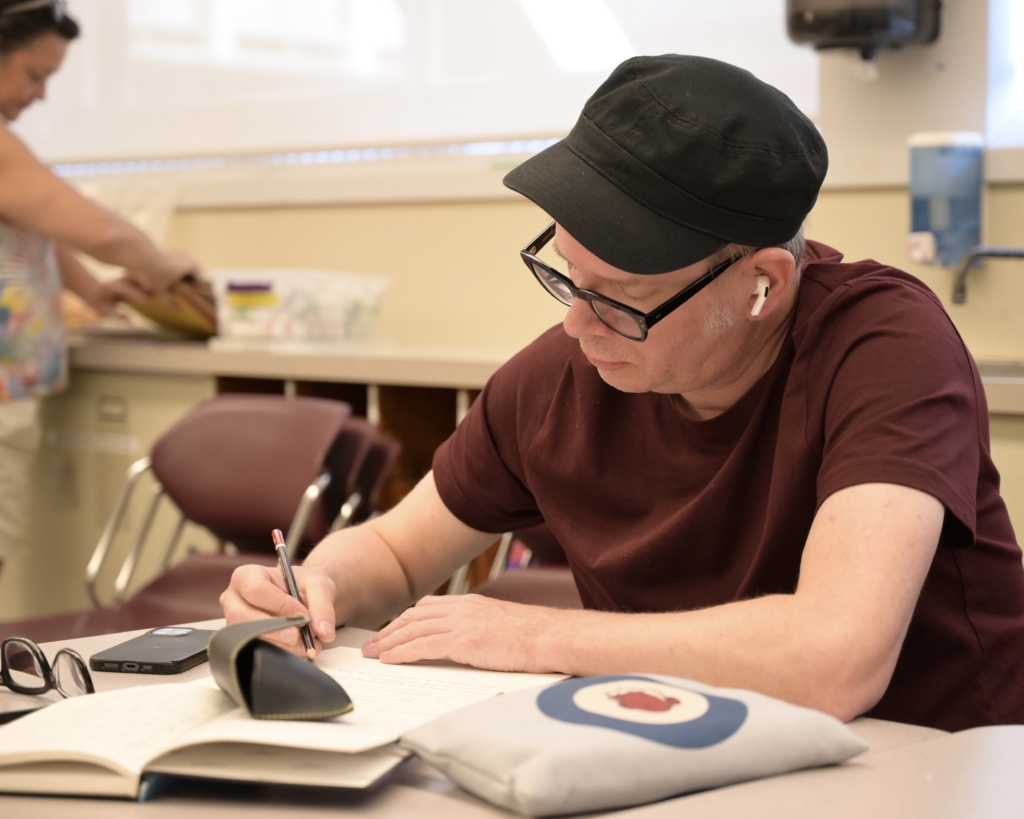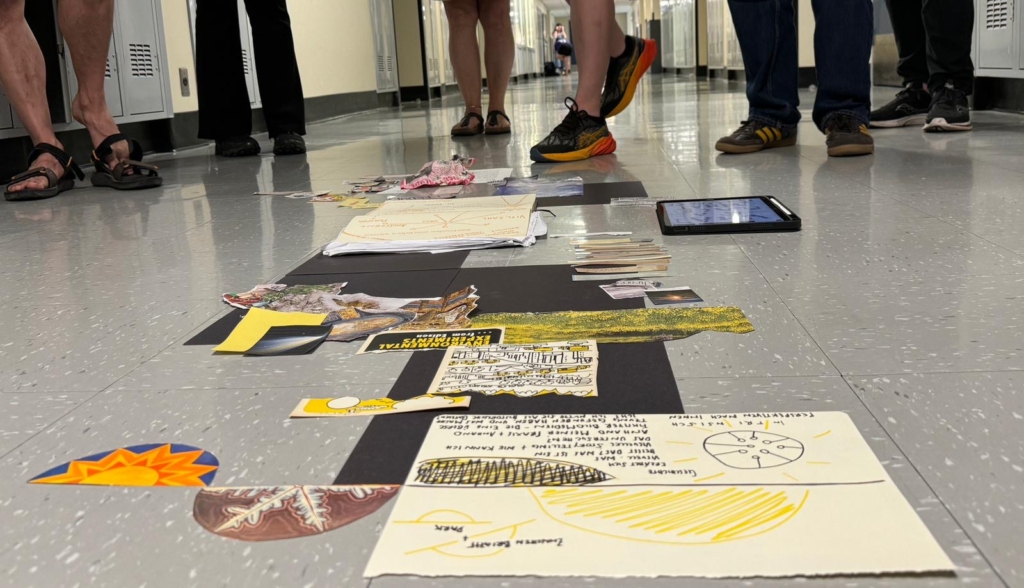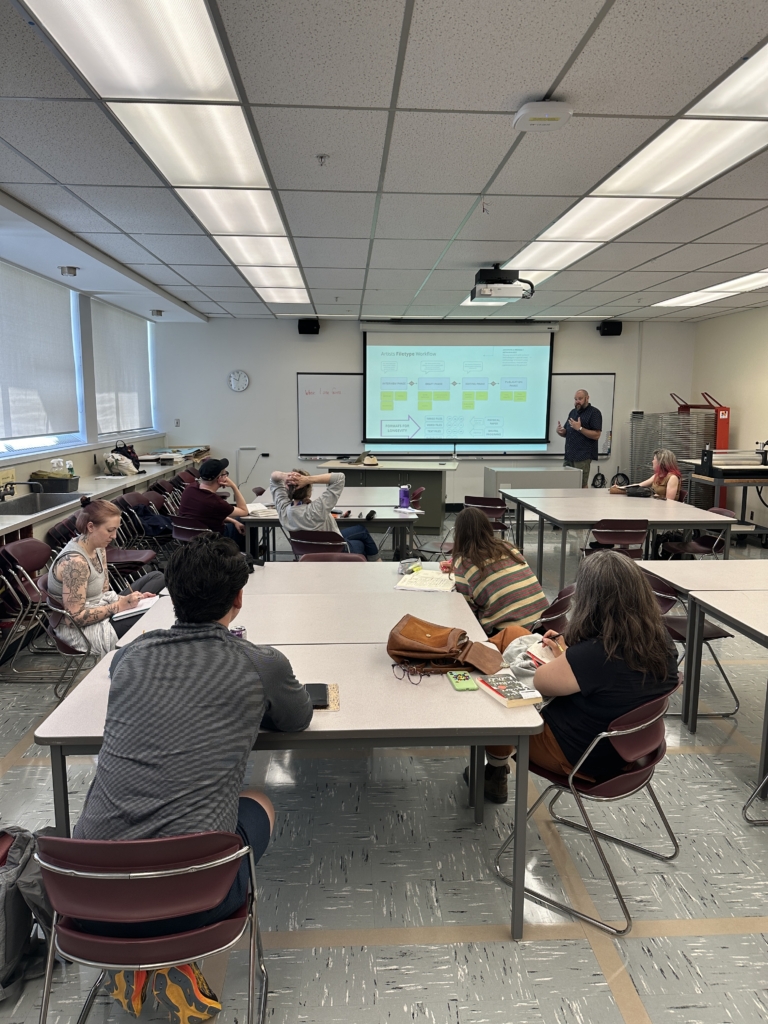Presentation and workshop with Miriam Libicki at Penn State – Feb. 25 & 26, 2025
In a session titled ‘A Kind of Resistance: Illustrating Holocaust Survivor Stories’ that took place at the Pennsylvania State University on February 25, graphic artist Miriam Libicki discussed the collaborative nature of her graphic narratives. During the event, she showed a detailed deconstruction of the process of building a graphic novel out of interviews and active collaboration with survivors, historians and researchers. She discussed the unique strengths, as well as challenges, of using comics to depict the Holocaust, and to depict subjective memory in the absence of photographic documentation.

Students engaging with workshop drawings created in session. Photo credit: Kobi Kabalek.
During the follow-up event on February 26,, ‘Inking the Unthinkable: A Sense-Memory Writing and Cartooning Workshop’, participants engaged in a drawing exercise to experience the creative process as an act of memory, observation, and communication. According to Libicki, this hands-on memoir comics workshop was inspired by educator/cartoonist Lynda Barry’s theories of creative concentration as “deep play,” and writing as “delivering an image.”



Workshop drawing exercise, led by Miriam Libicki. Photo credit: Miriam Libicki and Kobi Kabalek.
Miriam Libicki’s most recent collaborative piece, ‘A Kind of Resistance’, was published in the anthology of Holocaust survivor graphic memoirs But I Live: Three Stories of Child Survivors of the Holocaust which received the Canadian Jewish Literary Award in 2022.
For further reading about the collaborative nature of Miriam’s art and the research behind her graphic narrative featured in But I Live, please click here.
‘A Kind of Resistance: Illustrating Holocaust Survivor Stories’
February 25, 2025
2:00 pm EST
W043A Dewey Room
Collaboration Commons, Patee Library
Pennsylvania State University
Event link: https://events.la.psu.edu/event/a-kind-of-resistance/
‘Inking the Unthinkable: A Sense-Memory Writing and Cartooning Workshop’
February 26, 2025
2:00 pm EST
College of Liberal Arts – 133 Sparks Building
Pennsylvania State University
Event link: https://events.la.psu.edu/event/inking-the-unthinkable/



